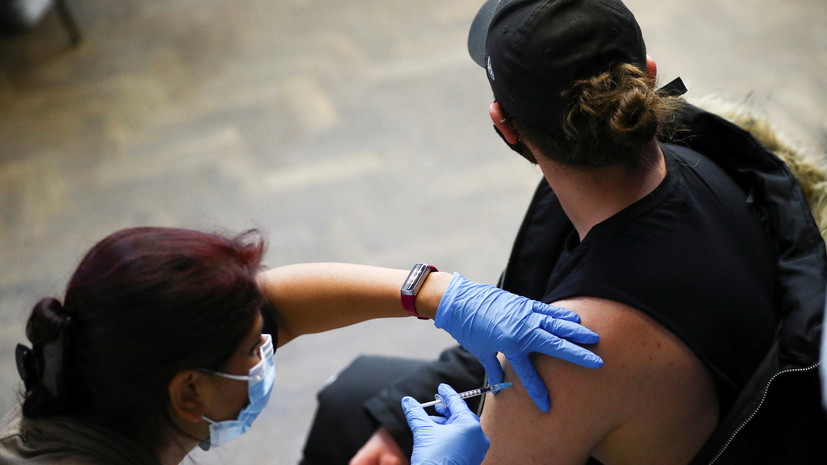The Russian Ministry of Health has approved a national vaccination schedule and a vaccination schedule for epidemiological indications.
The document includes, among other things, vaccination against coronavirus infection.
The order was published on the official Internet portal of legal information.
“To approve the national calendar of preventive vaccinations in accordance with Appendix No. 1;
a calendar of preventive vaccinations for epidemic indications according to Appendix No. 2, "the document says.
The order specifies that priority in vaccination against COVID-19 is given to persons aged 60 and over, as well as employees of certain areas - medicine, social services and others.
Also, people with chronic diseases and residents of cities with a population of more than 1 million people are considered priority vaccinations.
In addition, the Ministry of Health has included voluntary vaccination against coronavirus in adolescents aged 12 to 17 years.
"Against the coronavirus infection caused by the SARS-CoV-2 virus, the third level priority includes ... children from 12 to 17 years old (inclusive)," the document says.
It specifies that vaccination of this age group is carried out on a voluntary basis, subject to a written application from one of the parents.
Meanwhile, the WHO representative in Russia Melita Vujnovich announced an improvement in the epidemiological situation in the country, noting that there are signs of a plateau in the incidence of coronavirus in the Russian Federation.
At the same time, Michael Ryan, Director of the WHO Health Emergencies Program, noted that the organization is considering various scenarios for the development of the situation with COVID-19.
He noted that the virus will continue to evolve and mutate, which will threaten the health of the population in countries with weak health systems.
According to the head of the WHO, Tedros Adhanom Ghebreyesus, since the beginning of 2021, over 3.3 million people have died from coronavirus infection, and about 50 thousand lives are claimed by COVID-19 every week.
He also said that the organization has "strong evidence" of cases of the omicron strain among vaccinated and recovered patients, as well as data on the rapid spread of this variant of COVID-19.
Meanwhile, WHO's director of regulation and prequalification, Rogerio Gaspar, said the organization is ready to inspect the production of the Russian Sputnik V coronavirus vaccine in February 2022.
“According to our plan for today, taking into account the fact that we will receive all the information and the necessary information will be provided by the end of December, we will be able to conduct a local inspection at the production of Sputnik V in February,” RIA Novosti quotes him.
He also noted that RDIF promised to send data on the quality and production of the vaccine by the end of December.
The second data packet is to be sent to WHO by the end of January 2022.
At the same time, the head of the European Medicines Agency (EMA), Emer Cook, in an interview with the Financial Times, said that the effectiveness of vaccines against coronavirus has significantly decreased due to the emergence of the omicron variant.
In turn, the director of the center.
Chumakova Aydar Ishmukhametov said that the center expects to receive registration of its KoviVac vaccine from WHO in the first half of 2022.
“We are working on this, it will take half a year somewhere,” Interfax quotes his statement.
Head of the Center.
Gamalei Alexander Gunzburg, meanwhile, expressed the opinion that the new strain of the coronavirus "omicron" is of natural origin.
He noted that in southern Africa, where the first cases of omicron infection were reported, there are a large number of people with immunodeficiency, in whose body the virus could mutate for a long time.
“On the other hand, they have an immunized layer there with various pathogens of infectious diseases, including, I do not exclude, they were sick with coronaviruses of various genotypes very often,” he explained.
In this regard, the virus in the body could accumulate a large number of mutations, the specialist noted.
The press service of Rospotrebnadzor recommended that Russians refrain from traveling to Kenya due to the threat of the spread of the omicron coronavirus strain.
According to the latest data, there is an active circulation of a new variant of the omicron coronavirus in Kenya.

